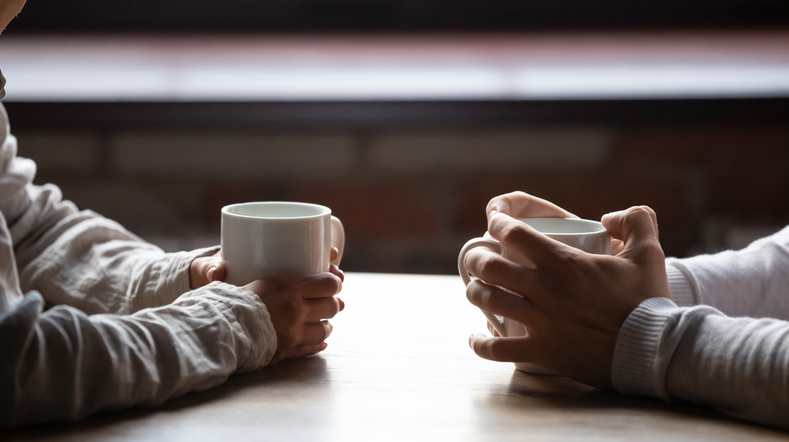Everyone’s life has been impacted by the pandemic. Now with our local states gradually re-opening, everyone’s lives will be affected in new ways:
- Do we go out or not? Is it safe?
- How and when do we safely reconnect with friends, family, religious meetings, and other groups?
- How do we compensate the financial stress caused by safe-at-home months?
The times of isolation provoked anxiety. Now we deal with the anxiety of not knowing when our calculated risks are accurate as we decide when, and if, to reconnect.
How can you protect your mental health during the pandemic and the reopening?
At this point in time, we are dealing with two opposing stressors:
- Anxiety for our health and the health of those we care about during this unprecedented pandemic.
- Anxiety caused by the isolation and financial stressors resulting from our part in reducing the impact of the pandemic.
We will make better decisions if we protect our mental health throughout the process. One of the biggest triggers for worsening mental health issues in this pandemic is the anxiety everyone is experiencing. So, to protect mental health, it is wise to practice some basic anxiety-management skills:
Beware the HALT.
- Don’t make decisions if you’re HALT (Hungry, Angry, Lonely, Tired).
- If you’re HALTy, the logic part of your brain will be at least partially offline, so address your basic needs, then go back to decision making. (I know, the Lonely may not be so easy: if you’re quarantined, text a friend, let them know how you feel. It will help.)
Practice self-awareness.
- You have feelings and needs. Each of these has a purpose and you have a right to identify, understand and make choices about how to healthily address them.
- I recommend to my clients that several times a day, they practice the 3Ws:
- What am I feeling?
- Why am I feeling that way?
- What am I going to do about it?
- When you respect your feelings and give yourself permission to make healthy, considerate, empowered choices about them, you will feel better.
Take up a mindfulness practice.
- Mindfulness may sound too hipster for many Americans, who like to see themselves as down-to-earth. I tell you the truth, in past generations, when life was slower, many Americans practiced mindfulness, they just wouldn’t have called it that.
- Mindfulness is simply anything you are doing, and just peacefully doing that thing, only thinking about that thing (or about nothing in particular).
- Our ancestors would have practiced these mindful activities:
- Daily prayer times
- Fishing
- Needlework
- Working in their family garden
- Sitting on the porch and watching the sun go down
- Quiet walks around the neighborhood, in the woods or pastures
- They did not think those quiet times were frivolous, and in fact, they were right. Research shows that mindful practices:
- Improve mood
- Reduce anxiety
- Improve working memory
- Help manage temper
- Aids immune system
- Our ancestors would have practiced these mindful activities:
- Want some modern-day ideas for practicing mindfulness if you’re not a naturally mindful person? Check out this post: https://vickitillmancoaching.com/7-mindfulness-choices-for-people-who-arent-naturally-mindful/
Beware your social media
Many Americans are consuming lots of social media during their safe-at-home times. You might have noticed that sometimes after checking in on Facebook, Twitter, or what-have-you, you feel more anxious, angry or hopeless. The unfortunate truth is that the social media platforms are designed to work that way. The bigger emotion you feel when you are scrolling through their feed, the more likely you are to stay on that platform. No kidding. There is an algorithm that watches what you hover over, read, “like”, share or comment on. That type of material is served more and more to you, until you can feel like an anxious mess if you spend much time on social media.
How do you handle that? (I’m not going to tell you to drop all your social media accounts.)
Limit the time you spend on social media
- For every time you hover over, read, “like”, share or comment on a negative-information post, do the same for at least two positive posts. (I don’t have real research on effectiveness of this practice, but have been trying it myself to keep the algorithm more balanced, and I think it helps. Try it, and see what you think.)
- When you feel anxious, angry or hopeless after reading something on social media, ask yourself: Who is benefitting from my anxious, angry or hopeless feelings? Is the person who posted that information after:
- Attention?
- Money?
- Power?
- If so, take what you read with a grain of salt!
Talk to your counselor
We may still be talking to you through telehealth for a while, for everyone’s health and safety, but helping with anxiety and mental health are why we are here.
The world is more stressful than it used to be, but you can use these tools and others to protect your mental health during this pandemic and the re-openings.


